We were lucky to catch up with Prue Jeffries recently and have shared our conversation below.
Alright, Prue thanks for taking the time to share your stories and insights with us today. We’d love to hear the backstory behind a risk you’ve taken – whether big or small, walk us through what it was like and how it ultimately turned out.
Sometimes just living each day as your authentic self comes with risk and takes courage. Although I was a Professional Surfer – risk, taking is not something I am inclined towards. I am not driven by adrenaline seeking. I am a creative, open and curious person who likes to have the freedom to explore life. Risk can mean different things to different people, and in different contexts. I have never felt a need to push fear away or battle with it or even deny it. I feel fear is a healthy mechanism, and I have always worked to make fear my friend. Acknowledging fear makes someone courageous. Personal growth develops when we dialogue with our fears. What I learned as a Professional Surfer was how to put fear aside, how to regulate myself in the face of it. Or go through the eye of the needle of fear when situations called me to take risks. Most of these risks were around whether my life was in danger in the ocean. Other times it was around social anxiety and having crowds watch me perform. The pressures and lack of confidence in performing and the ramifications of it in my career.
Risk taking – without the need for adrenaline seeking behaviors or just flippant behaviors is an art form. How does one take a risk being fully present with the situation or risk at hand? To take a risk, one has to be comfortable letting go at some level of control. The need to control life around you – creates a lot of fear. Of course, there are times when control is needed. But just that bigger sense of control. Can you plan and intend success, but also live with failure? (if the risk of failure is not life threatening) Can you get back up the next day and learn from a failure – so you can make it a success? Has it made you stronger and wiser?
I believe in accessing risks. Often Surfers scan their environment and make decisions relative to the risk at hand. Accessing one’s capabilities, strengths, weaknesses. Devising plans A, B, C. Going into it situations with eyes wide open, and as much information, education and preparation as possible. As much focus and presence as I can have. This takes a certain level of development and maturity, I believe. I remember discussing with a Pro Snowboarder friend how they approached the risks in back country avalanche conditions. He said to me – methodically and meticulously. With as much information, strategy, preparation as possible. We take it seriously. It is all measured and prepared. There is a limit and a point if accessed as too dangerous we wouldn’t do. The world only sees us flying down a mountain.
I think my friend’s story really highlights key aspects of risk taking. I lived my life taking risks in the ocean. It prepped me to take a risk in building a life. One that supports people to find a sense of well-being through holistic awareness practices and somatic education. These originally were not well-known approaches to well-being. They have very good fundamentals to help people feel better. I think they are approaches that are finally having their “day” as far as broader understanding and acceptance in people goes. So taking risks in tuning one’s life to something that is not widely accepted – it’s that envelope where risk and innovation co-exist. This world today needs all the innovation and support it can get.
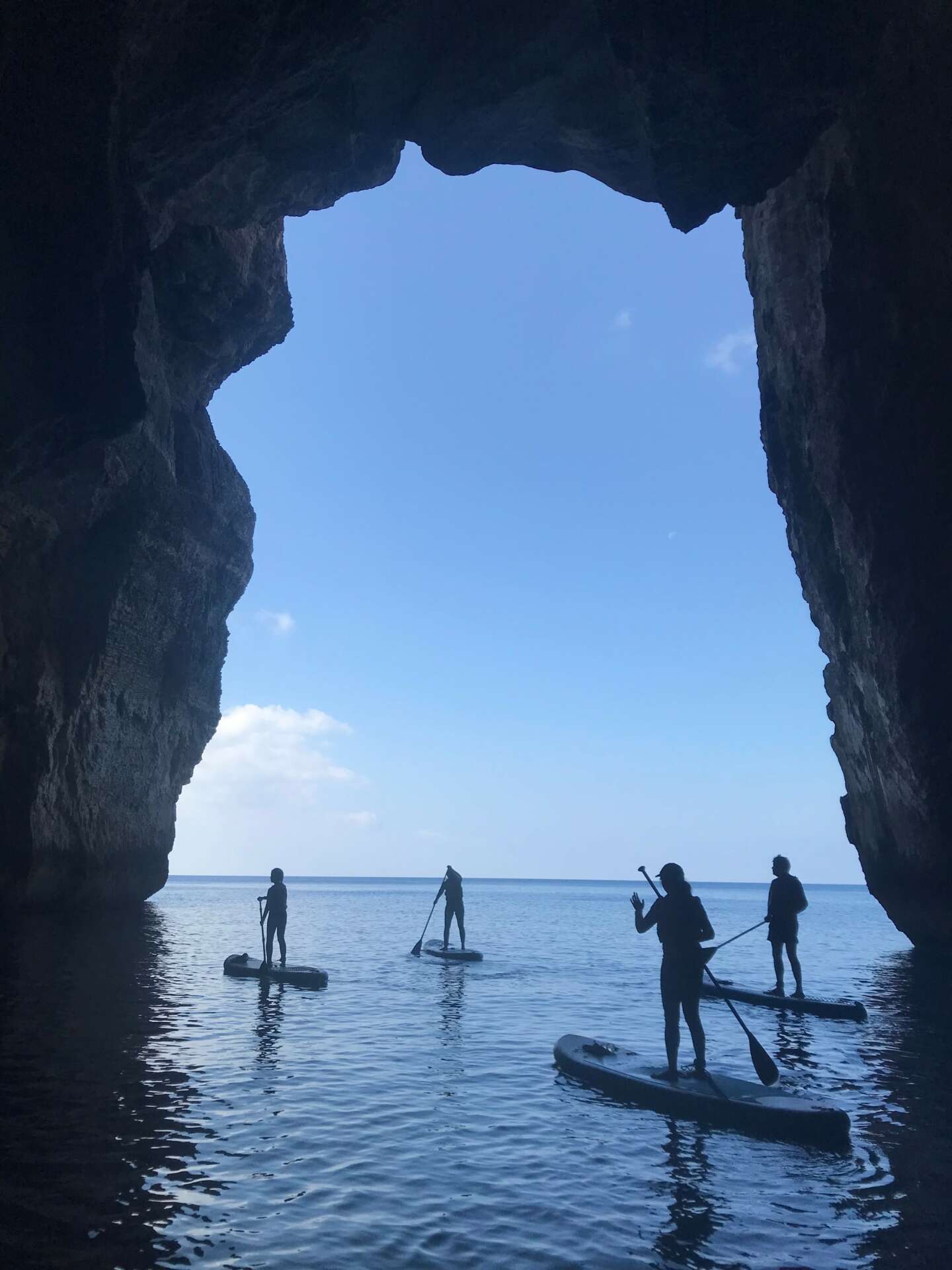
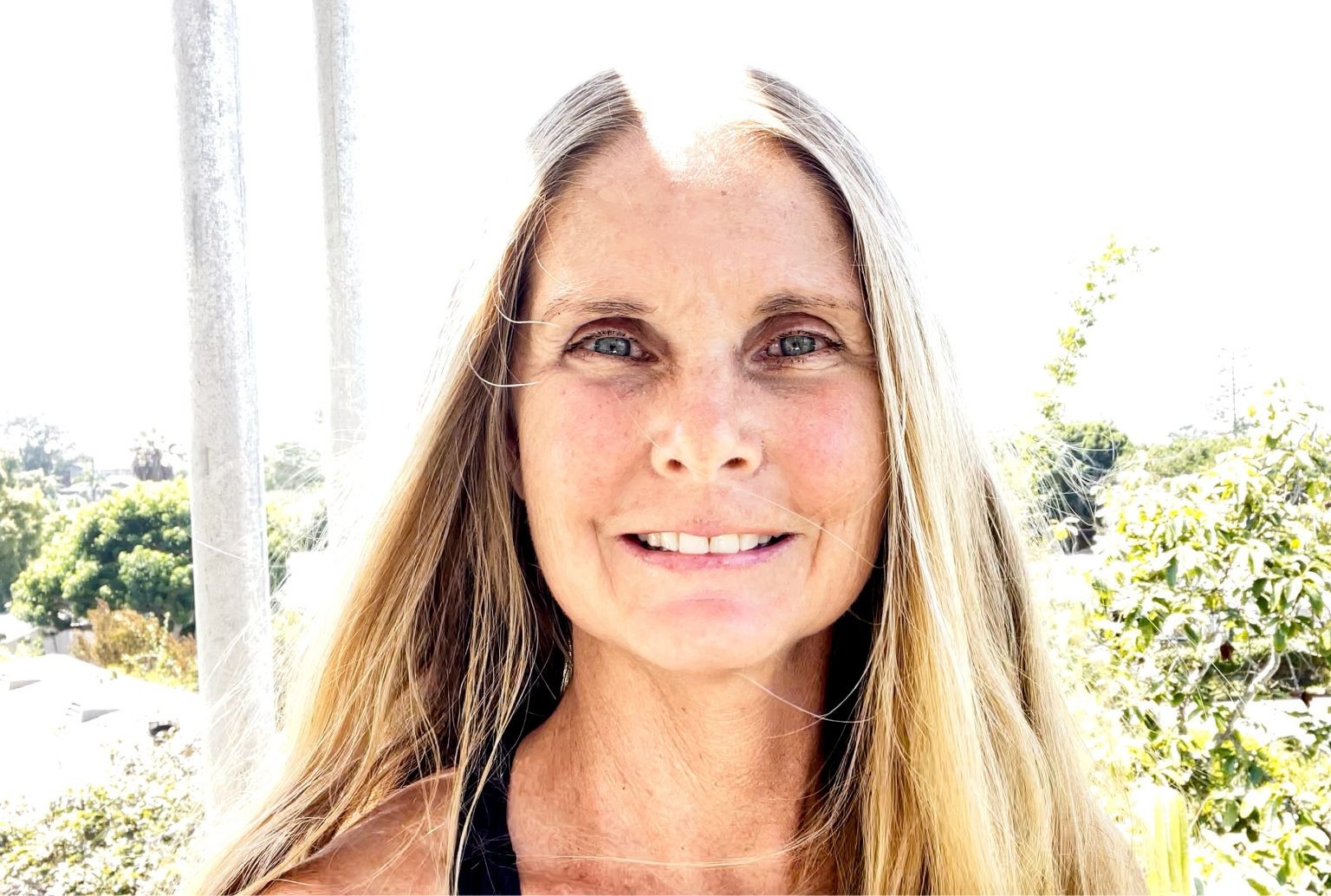
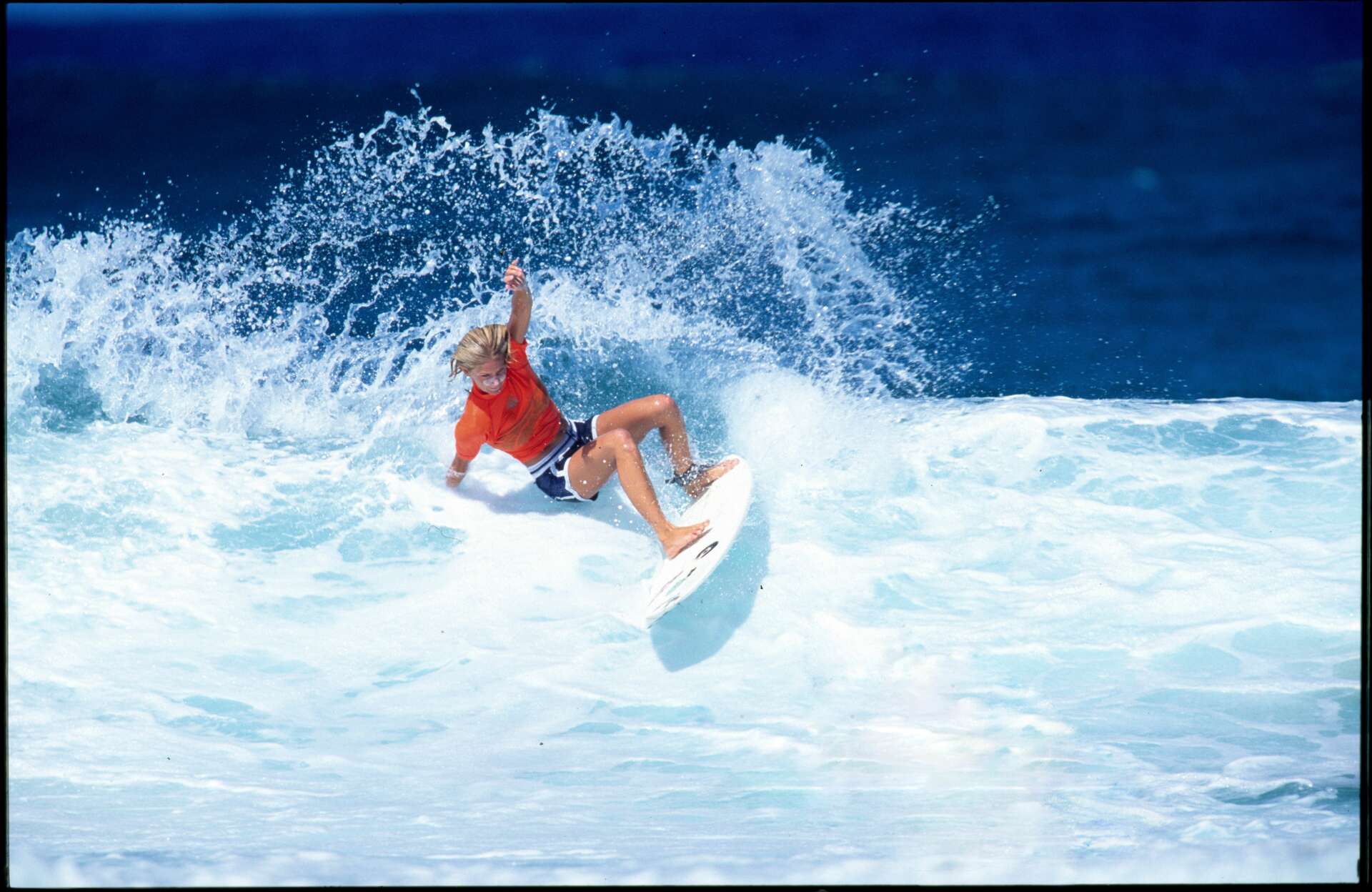
Awesome – so before we get into the rest of our questions, can you briefly introduce yourself to our readers.
I think the best way to describe myself is that I am a Holistic Guide. I focus on supporting people to find a sense of balance, wholeness, and integration in themselves. Through which they can feel a sense of interconnection with life. My official credentials: I am a Master Somatic Movement Educator, Craniosacral Therapy Teacher, Continuum Teacher, Certified Massage Therapist and founder of Naio™, a holistic awareness process.
I work with people through personal sessions. I conduct workshops and group classes in Continuum, which is a somatic movement practice. I teach, train, mentor and supervise people in Craniosacral Therapy and have launched a practitioner training in the holistic awareness process of Naio™. I enjoy organizing nature focused retreats that blend surfing and stand-up paddling with somatic movement sessions, art and cultural experiences. I have taught and coached surfing for decades and also mentored young women.
I am deeply experiential. Everything I do is through the lens of – how do we become an integrated and aware microcosm of the macrocosm of life itself? Life exists in the context of a vast cosmic process of which we were born of this earth, and each of us has a unique offering to earth, to life, to ourselves and each other, to express. When I say this, I am pointing to the interconnection of an individuated person. It is distinctly different from the fragmentation of individualism that has created so much disharmony and violence.
I was originally a Professional Surfer for roughly almost 17 years. From 1990 to 2007. I also paddled outrigger canoes and trained for major distance races like the Na Wahine O Ke Kai race that is 41-miles. I came from a family of athletes and sailors. My grandfather trained Olympic wrestlers and qualified for the Olympics himself. My uncle represented Australia at the Commonwealth games. My mother was fitness oriented and in medical. I grew up with her various workout choices and long walks from the 1970s, 1980s, 1990s onwards.
I have a personal affinity for natural or holistic forms of wellness. Growing up, I was very interested in philosophy, art, society, culture, psychology, and spirituality. Someone deeply fascinated me with Steven Hawking, David Bohm, and Carl Sagan. Studying them from a young age. I was most interested in questions of consciousness, thought patterns. In the nature of existence. I grounded out these aspects of myself in creativity, art and writing, being in nature and the physicality of sports, especially surfing.
When I was on the Professional Surfing Tour, I used various standard fitness approaches to training. I was fortunate to be exposed through paddling circles to Olympic athletes and trainers. I then brought in my own affinities. For decades, I delved into meditations, psychology, breath work, somatic movement practices, and different bodywork practices to enhance my surfing capacities.
I had that all behind me before I trained in a bodywork approach. From there, I gained some confidence in myself to express what I had innately, for many years, been working with. So creating my own approach to working with people, also stepping into further learning and now teaching with craniosacral therapy and somatic movement education. I tend to have a need to really hone and refine. Sometimes that has meant I have taken a little too long – to really step up – in the past at least.
I am at this point in my life very excited to be moving forward with Naio™. I have had to change the name of the approach several times to find something that expressed authentically the core principles. Also, satisfied the business realities around naming something in the world today. My focus with Naio™, is to offer a holistic awareness process. Practitioners use somatic education principles as a form of co-regulated care that leads to better self-regulation.
The principles are based on seeing all existence is movement or flux.
- The underlying reality is wave-form.
- The ability to be coherent and present with another person is supportive.
- Deep meditative states support well-being.
- Compassionate touch is a fundamental biological need.
- Developing greater sensory awareness is grounding, nourishing, if not liberating.
- Better nervous system regulation helps us to embrace life.
Each of us is flow, a constellation of wave-form, of intricate biological processes, of emotional, psychological, symbolic, social, cultural, ancestral and spiritual. We are constantly experiencing life through all these layers unique to ourselves – yet also universal. I like to explore these themes in a natural and grounded ways.
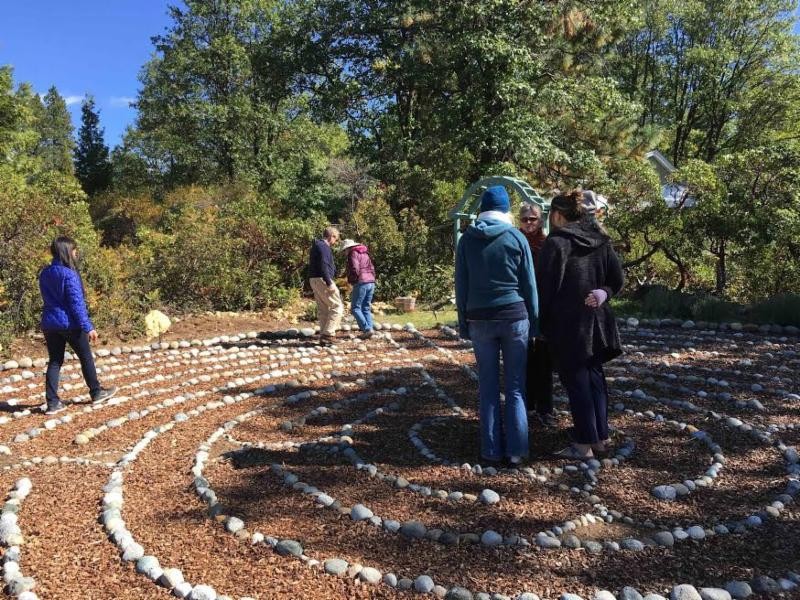
We’d love to hear a story of resilience from your journey.
I am very focused on resilience. As I have had to overcome many challenges in my life to develop it further. It is why I offer retreats focused on developing it in people. I have had many experiences in life, and being a deep feeling person I have had to navigate the impact of situations that were at times abusive, diminishing or heartbreaking.
The world of competitive surfing in the 1980s, 1990s and 2000s was derogatory in many ways towards women. Women were also hyper-competitive. I entered it from a background in my family with a father who had many issues as well. It was also rather unstructured. I was traveling the world at the tender age of 17 years old. Even though I was one of the best in the world. I could not secure enough support to cover the expenses or even create the right circumstances for my flourishing and growth. So I entered that world with what many would call today – ACE (Adverse Childhood Experiences). It ratified initially them, in the world competitive and commercial arena.
At one point, I needed to take a full-time job so I could save the money to travel and compete. My grandfather had been a carpenter. I got this idea that if I couldn’t have the hours and time to train for surfing – as I had to work a full-time job. That maybe it was best to work a job in construction as I would be outside (not stuck in an office) and its physicality would be my workout and training. I applied for a job with a telecommunications company called Telstra. It was the early 1990s. They had just enacted affirmative action – so that woman would be hired in construction. I was young. It was an entry-level job. It basically meant that I wouldn’t be discriminated against for hiring due to the erroneous idea I didn’t have the physical strength as a woman to be in construction.
I was one of the first group of women hired. At the training facility, they converted the male only bathrooms to women – and they put the men in porta-potties outside. There were only 2-3 of us. The men were respectful. They were a little off center at the new laws and what they could say in front of us – or how to treat us. I found that endearing, actually. But there was a particular moment when we were all asked/trained to take crow bars and manually smash up asphalt and cement with them. We had to choose teams. I saw most of the men’s side-ways glances at each other about having a woman on the team (the idea we wouldn’t be able to do much and be a liability). I had been training paddling outrigger canoes at 4 am three times a week. So I just remember that moment. As I thought – I will not accept this. I will earn my place and I will show them. So I decided I was going to pick up that crow bar and smash concrete until all of them needed a break = and I was going to keep doing it while they were on their break watching me. I wasn’t interested in a handout for my position or for extra help. I just had a sense of dignity and belief in a woman as an equal – and I wanted to make my point. I did. Actually, a couple of men came over at the end of the day. I had kept going when they stopped. One shook my hand and said something to the effect – I didn’t know what to expect with working with women. But I would have you on my team any day – and over a lot of these guys. I channelled a lot of the frustration and put downs I had encountered since young – into that moment. I woke up and couldn’t move the next day. I certainly wasn’t going to let anyone know that. I ended up promoted in the job quite fast. I also saved the money for the surfing tour – and I started getting some excellent results.
Whilst this is a somewhat lighter example of something in my life. How do we persevere in the face of challenges or through heart-break and disappointment? How do we get up and have the courage to move forward each day? I have had many moments depending on life situations where I haven’t thought I could or should or would. I learned to reach deep – and take all life has sent my way and when I felt ready to get back up. Traumatic situations take away our sense of having choice or options, our sense of being valued or safe, or of support. How do we learn to believe in ourselves and life again?
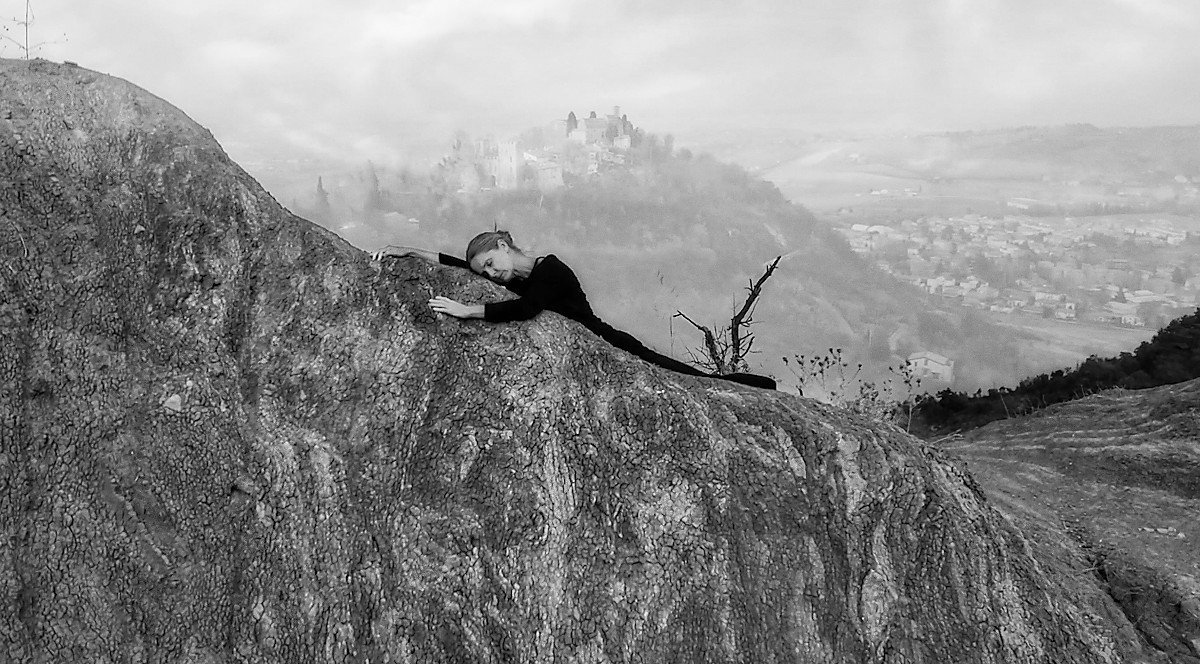
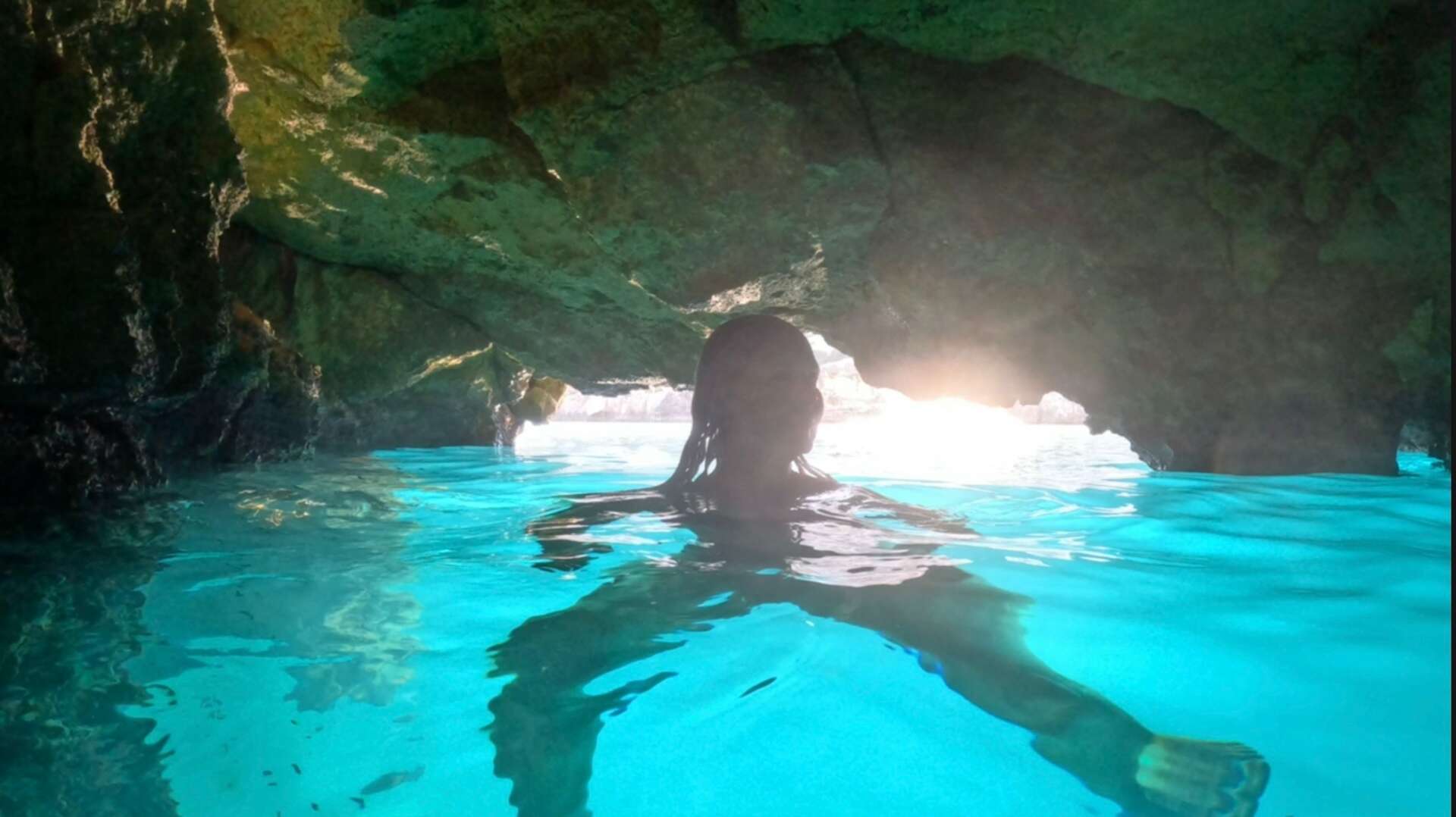

Putting training and knowledge aside, what else do you think really matters in terms of succeeding in your field?
I run what I consider a more artisan approach to what I do. I am not as interested in large numbers of people as a mark of success. Success for me is seeing people grow and understand themselves and life around them better. Have an overall better sense of well-being. Their success is my success. I am more interested in the world becoming a kinder, safer, more caring place for the earth, people and life.
I feel anyone in the type of field I work in is well served, to do their best to work on and with themselves constantly. I often find today it is very easy to adapt semantics around wellness or holistic approaches that have become culturally the latest thing. People have ideas about it. Anytime it becomes one’s identity or a certain group identity or things harden around semantics. A deeper internal process with feedback from the external world is interrupted and becomes problematic. It is the first step into fundamentalism. There is not a belief system, technique, or approach that can’t be used to rationalize, project, or bypass. To avoid an honest look at a situation, behavior or issue in oneself or in group, think that occurs.
I feel focusing on one’s own development and growth, staying flexible and also clear on one’s strengths and weaknesses. Knowing oneself and continuing that dialogue is essential. Clients and people you support can, on some level, sense this.


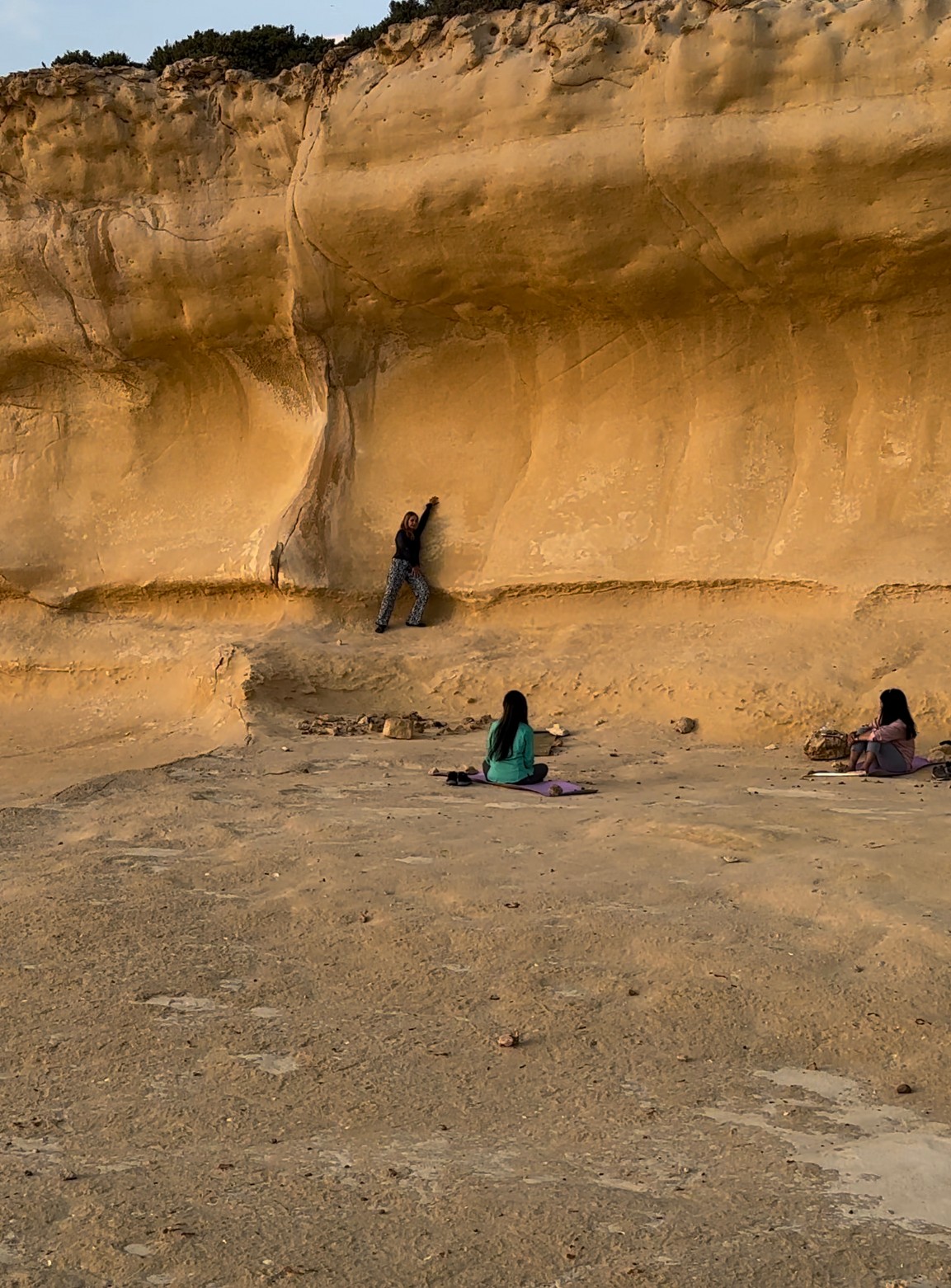
Contact Info:
- Website: www.bodyofwonder.com | www.naioprocess.org | www.surftheflow.com
- Instagram: @surftheflow @bodywondr
- Facebook: https://www.facebook.com/surfingtheflow/ | https://www.facebook.com/prue.jeffries/ | https://www.facebook.com/bodyofwonder/
- Linkedin: https://www.linkedin.com/in/prue-jeffries/
Image Credits
Jim Pidgeon Photographer Mirco Dondi


